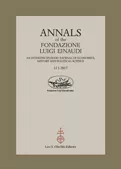Diasporic networks are inhabited by displaced identities and communities that define and negotiate themselves through dispersion and belonging. What configures dispersion and belonging is culturally defined as depends on specific understandings of space and specific constructions of identity. This work focuses on a single knot of the Sherpa diasporic network: a Sherpa garden located in Southern Scotland. The analysis of place-making processes that take place outside the Sherpa homeland is particularly interesting because it describes a space that is possible to understand only overcoming methodological nationalism and western dualistic epistemology. Makers of the Sherpa indigenous knowledge and cultural understanding appear re-defining themselves in other landscapes, and the Sherpa identity negotiates itself together within the construction of new epistemic spaces. By engaging with post-colonial scholarships, the work presents the ‘radical authenticity’ of the Sherpa garden as a relational epistemic interaction between its occupants based on hybridity and creativity.



